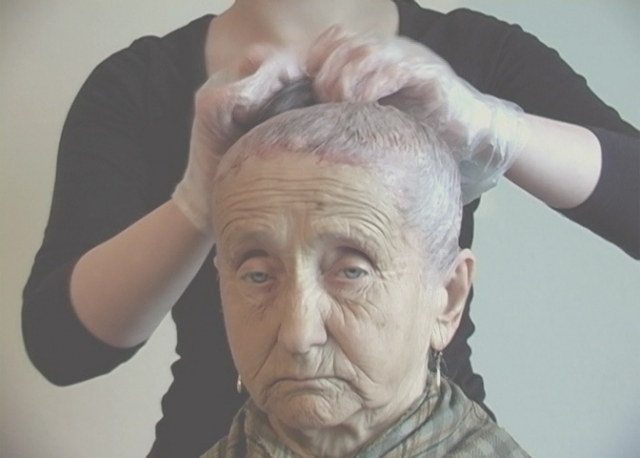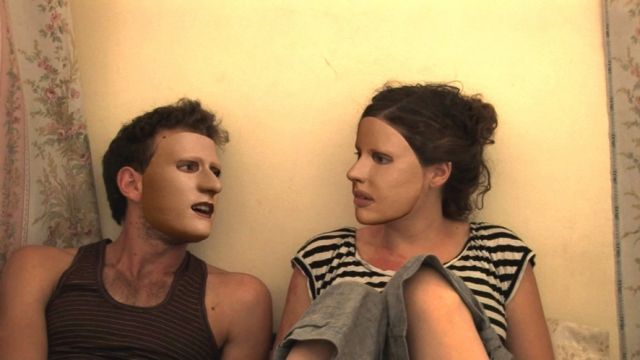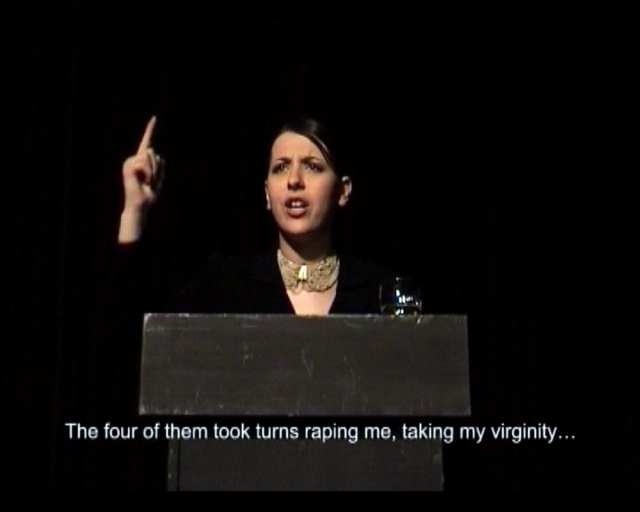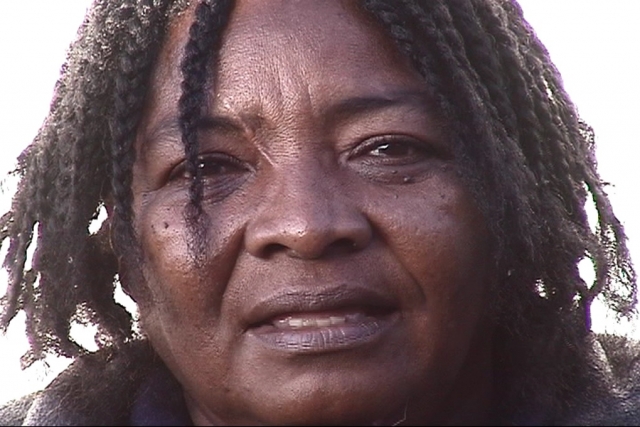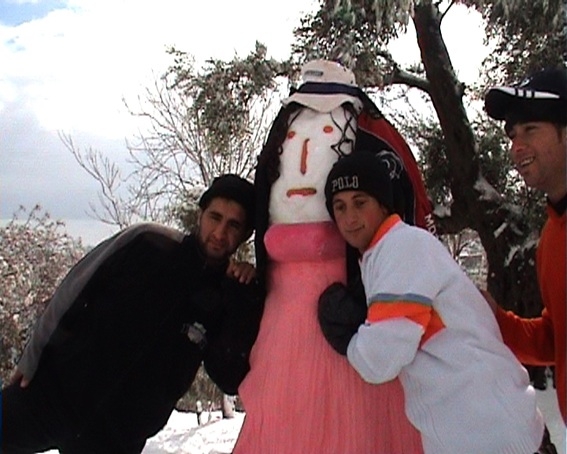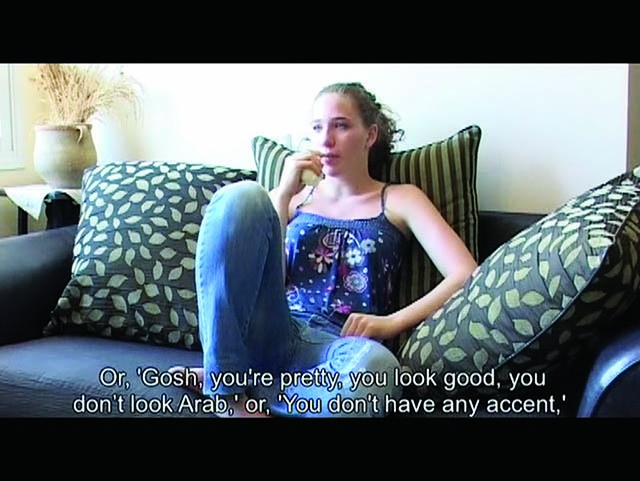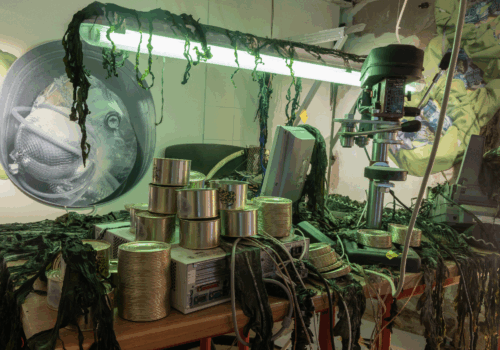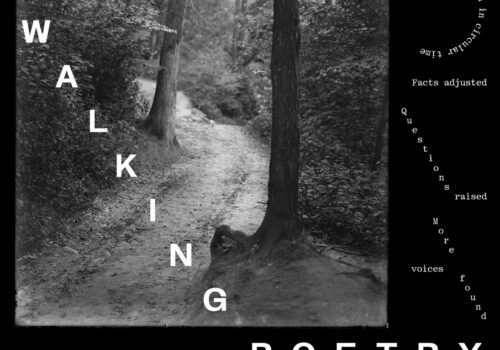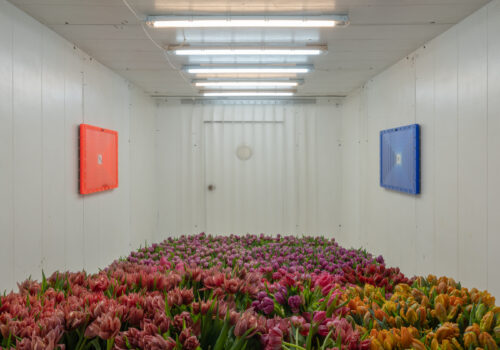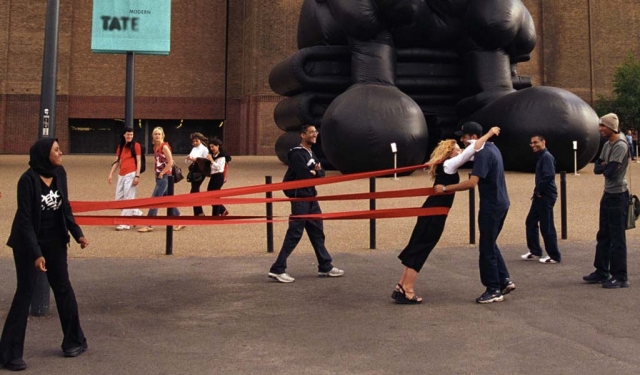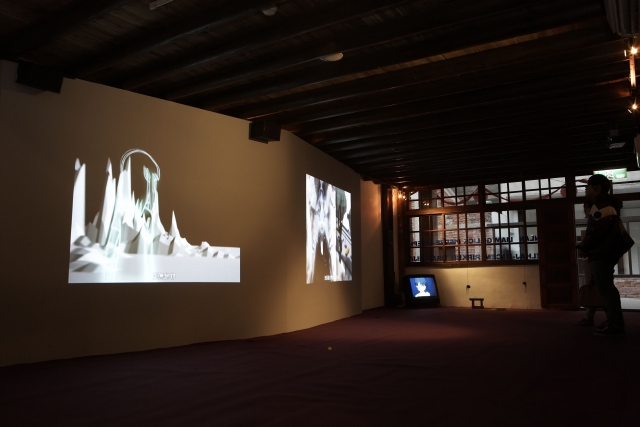ExhibitionJune 27–August 24, 2012
Secondary Witness
Secondary Witness is curated by Maayan Sheleff, recipient of ISCP’s 2012 Curator Award, which offers the opportunity for a curator or curatorial collective to present a new group exhibition. This award was established in 2010 for participants in selected curatorial studies programs, as a response to the lack of opportunities for emerging curators to present institutional exhibitions in New York City. Participating artists include Lana Čmajčanin, Dor Guez, Adela Jusic, Juan Manuel Echavarria, Avi Mograbi and Michael Zupraner.
The video works in Secondary Witness touch upon the notion of testimony and explore the artist’s position as mediator. Various personal stories are presented in the included works, which reflect societies in a constant state of conflict and trauma. The artists in Secondary Witness, natives to countries of conflict, examine their place as secondary witnesses and their relationship to protagonists and their testimonies.
Some of the artists choose to blur the boundaries between documenter and documented by entering the photographic frame, or handing the camera to the subjects themselves. One prominent example of this is Michael Zupraner’s Snow Tapes, in which he worked with materials shot by a Palestinian family, who documented their violent encounter with a group of neighboring Jewish settlers in Hebron. A more subtle example is Dor Guez’s (Sa)mira, in which he acts as an invisible yet heard presence, re-examining his protagonist’s point of view by making her repeat her story, in which she recalls a traumatic moment when her Arab background is exposed, and she is asked to change her name to a Jewish one by her boss. Avi Mograbi is a prominent character in his work Z32, where he debates (and sings) about the difficulty of recording an Israeli ex-soldier recounting a war crime he has committed.
At times the artists literally take the voice of their protagonist: Lana Čmajčanin stands at a podium, reading the testimony of a Bosnian woman who was raped during the Bosnian War, while Adela Jusic reads her grandmother’s memories as she washes her hair repeatedly. These acts of over identification also externalize a mode of control and manipulation over the protagonists. Like Čmajčanin and Jusic, many of the artists search for a performative testimony that will reflect a subjective feeling. This performativity is evident in Juan Manuel Echavarria’s Mouths of Ashes, where survivors of massacres in sequestered villages in Colombia put their traumatic experiences into music and sing them in front of the camera.
The subjective, performative and poetic testimonies reflect an abandonment of the need to represent the real, and an attempt to construct a new reality, as a critical act. With many moments of humor and grace, they reject the commonly accepted notion of truth, question definitions of victim versus perpetrator, and challenge preconceptions. The undermining of the customary power relations between documenter and documented, with regard for the resulting internal contradictions and complexities, is a call to alter the existing balance of power between strong and weak, heard and silenced. It calls upon the viewer, as a third witness, to add their own memories and experiences, to reconsider his/her passive position in power relations, and to take a more active position in their realignment.
A publication with a newly commissioned text by Maayan Sheleff will be available.
Maayan Sheleff is a curator at the Center for Contemporary Art, Tel Aviv, and Assistant Director and faculty at the International Curatorial Studies Program of the Kibbutzim College of Education and the CCA. In recent years, she has curated many exhibitions and projects in a variety of institutions and in the public sphere, including co-curating ARTLV, the first Tel Aviv-Yafo Biennial (2009).
The Agency, Saturday, June 30th, 3-5pm at Independent Curators International, 401 Broadway, Suite 1620, New York, NY 10013
Speakers will engage with the idea of “the agency” through various projects, debating the possibility of art as a vehicle for social change, and the shift in the roles of both artist and curator on the border between art and activism. Participants include Maayan Sheleff and Chelsea Haines, Public Programs Manager, ICI, amongst others.
ISCP thanks the following contributors for their generous support: The Andy Warhol Foundation for the Visual Arts, Brooklyn Arts Council, The Greenwich Collection, National Endowment for the Arts and the New York City Department of Cultural Affairs.
